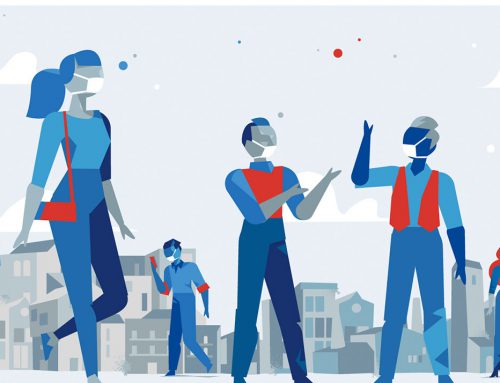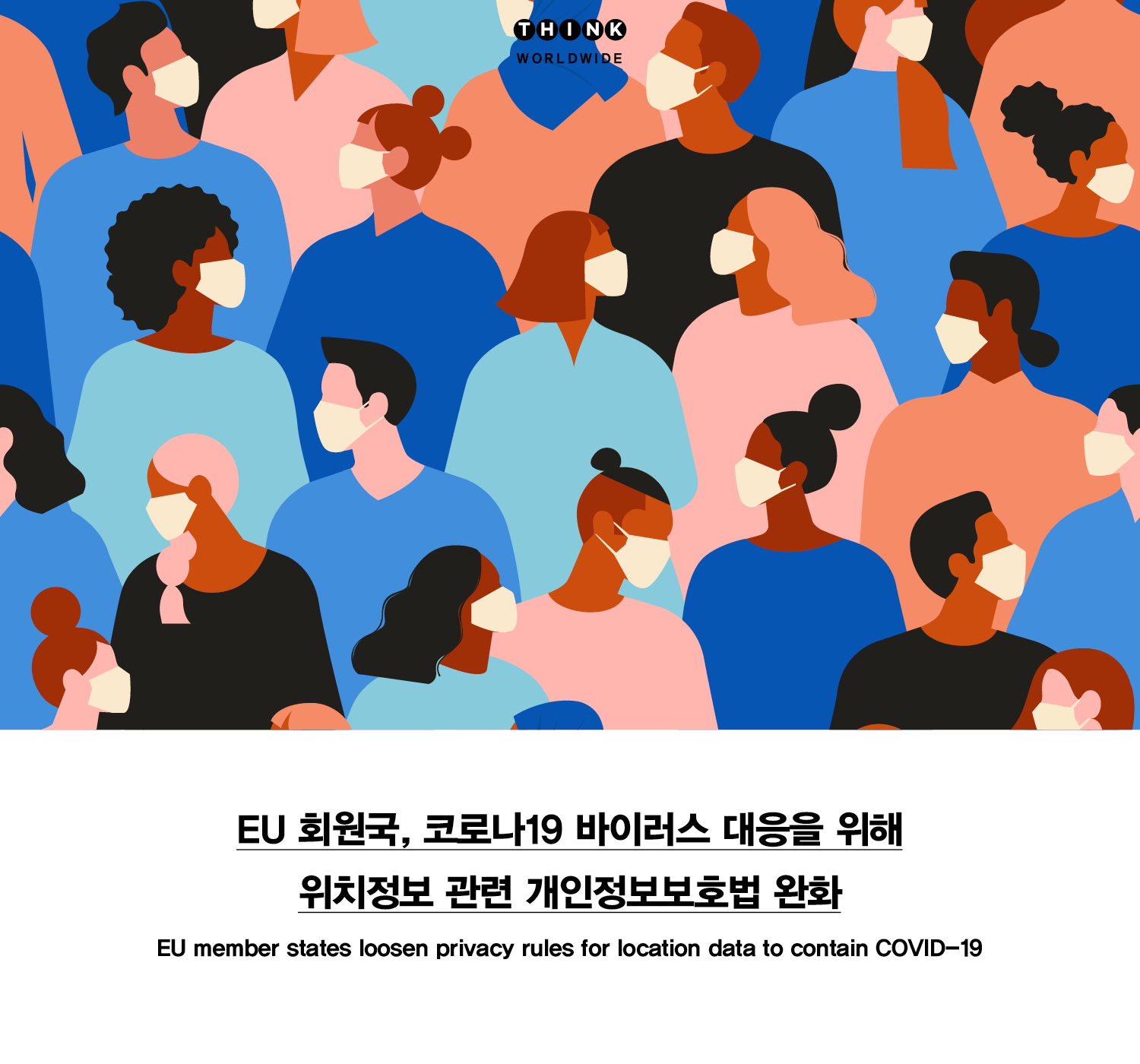
코로나19 바이러스로 인해 보건 재난 드라마가 펼쳐지고 있는 가운데 개인정보가 새로운 희생자가 되고 있다. 개인정보보호 옹호자들은 감시 프로그램이 더욱 강화될 것을 두려워하고 있다. 아시아는 개인의 위치정보 모니터링을 먼저 실행해 왔으며 EU 회원국들도 스마트폰을 통해 취득하는 위치정보 사용을 확대하고 있는 추세이다.
In addition to the human health drama that COVID-19 causes worldwide, another victim presents itself: privacy. Privacy advocates fear that surveillance methods will be stretched further. Asia is at the forefront of monitoring individual location data, but governments of EU member states are also increasingly using location data from smartphones.
코로나19 바이러스와 그 확산을 연구하는데 있어 기술과 데이터는 매우 중요한 역할을 담당한다. 더불어 정치 시스템과 법, 제도는 우리가 관련 데이터를 처리하고 가치 있는 정보로 만들어내는데 큰 영향을 미친다. 대부분의 나라들은 일시적으로 데이터 수집을 허용하고 있다.
Technology and data are crucial in research into COVID-19 and the spread of the corona virus. How we can process data and convert them into valuable information depends on the political system and local laws and regulations. Most countries deploy temporary data harvesting.
하지만 이런 데이터 수집 활동이 얼마나 일시적일지는 알 수 없다. 실제로 2001년 911 테러 이후 이스라엘과 미국에서 통과된 임시 감시법인 ‘애국자법’은 일시적이라는 표현이 얼마나 탄력적으로 적용될 수 있는지 증명해 보였다. 현재 EU 집행위는 대형 EU 회원국이 스마트폰 이용자들의 이용 패턴을 분석할 수 있는 메타 데이터를 제공해주길 바라고 있다.
But, the future is yet to show ‘how temporary’ this will be. In effect, temporary surveillance laws in Israel and in the United States (Patriot Act, 2001) have proven that ‘temporary’ is a fairly flexible concept. Now the European Commission wants large EU member states’ telecom providers to provide metadata to their users to analyze mobility patterns.
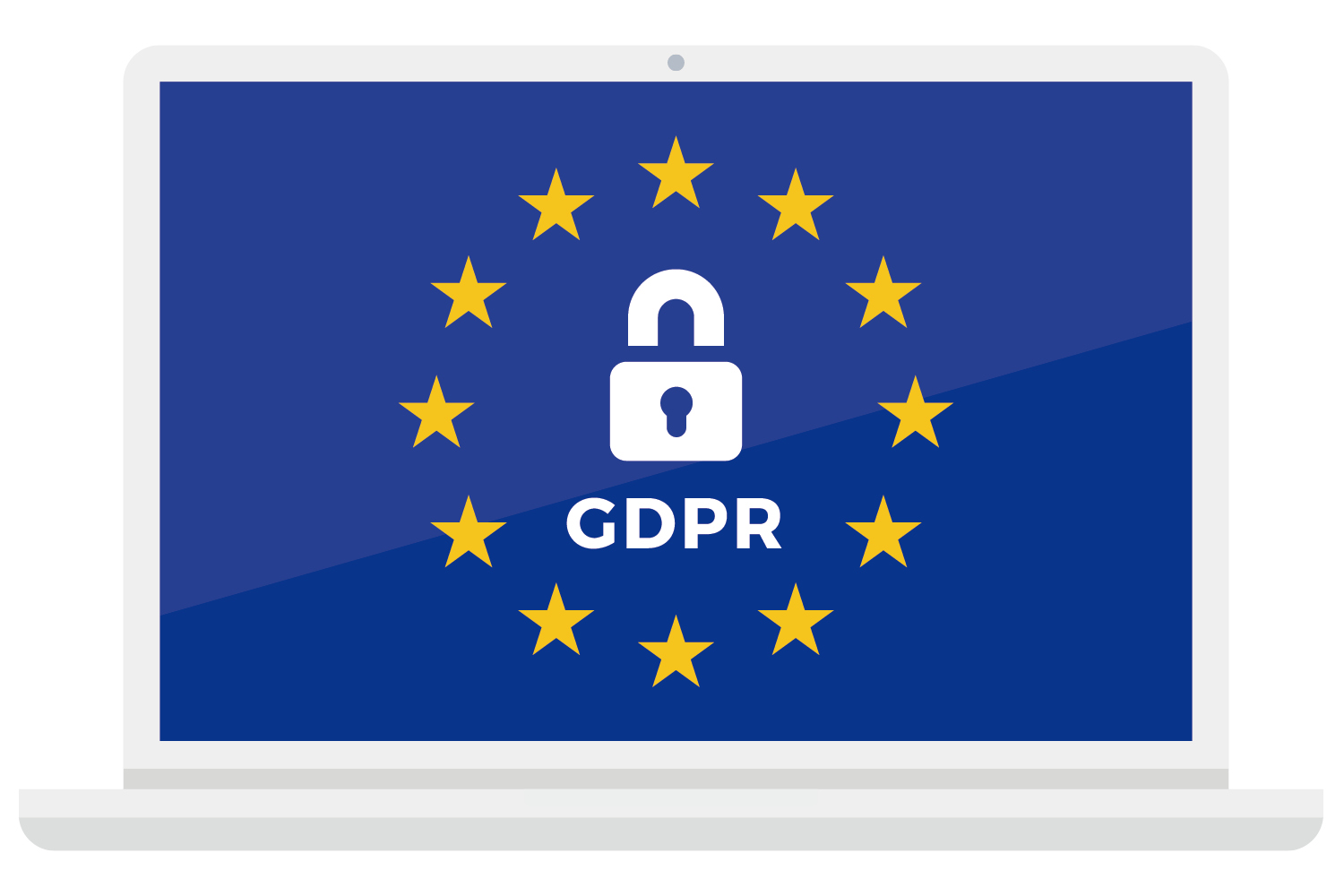
기지국 안테나 vs 앱
▼
무선전화 데이터는 기지국 안테나를 통해 사용자의 위치는 물론 다수의 사람이 어떻게 이동하고 있는지를 잘 보여준다. 이런 기술들을 이용하면 사람들이 실제로 집에서 나오지 않았는지 알 수 있다. 이동통신 네트워크 회사와 마찬가지로 앱 개발자들도 위치정보를 활용한다.
Masts versus Apps
▼
Telecom data give a good indication of where someone is, or how groups move. This said, radio masts have a limited range, in cities often only a few hundred meters. This way you can keep an eye on whether people really stay near their house. In addition to telecom networks, app developers also make use of location data.
위치정보는 무선전화 기지국을 통해 얻는 데이터보다 훨씬 정확하다. 앱이 사용하는 위치정보는 다수의 데이터 소스를 활용하기 때문이다. 대부분의 앱은 스마트폰의 GPS 데이터 외에도 기지국 신호, 인접한 와이파이망 등을 활용해 위치정보를 파악한다. 이 방법을 사용하면 사람이 집에 있었는지 여부를 알 수 있다. 더 나아가 누군가 신뢰할 수 있는 무선망에 접속하고 있다면 직장에 있거나 집에 있다는 것도 알 수 있다. 스마트폰은 또한 인접한 블루투스 장비를 통해 위치를 파악할 수 있다.
These are much more accurate than data coming from cell towers. That’s because they leverage multiple data sources. Most apps supplement the phone’s GPS data with external sources, such as cell towers and nearby Wi-Fi networks. This way, they can ‘see’ whether someone is at home. Moreover, when someone is connecting to a trusted wireless network, one can be sure that it is either work, or the home address. Phones also ‘know’ where they are based on nearby bluetooth devices.
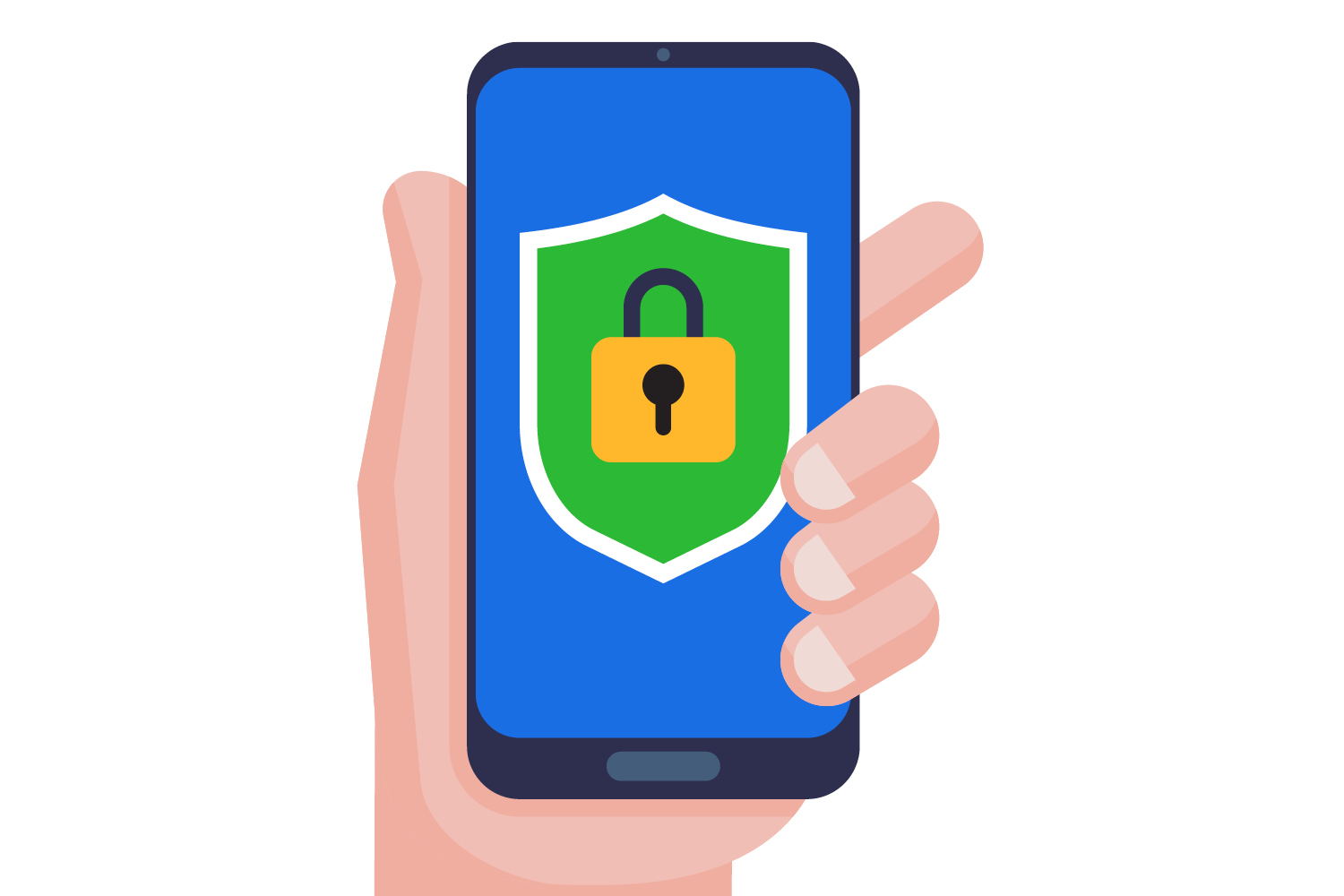
일반개인정보보호법과 전자개인정보법 가이드라인
▼
유럽에서는 건강 데이터와 위치 데이터 처리에 엄격한 규정이 적용된다. 데이터를 다루는 기관이나 조직들은 데이터 주체의 동의 없이 일반개인정보보호법에 따라 건강 데이터를 처리할 수 있지만 예외가 있다. 그건 바로 특정 법률 및 규정에 따라 공중보건 분야 관련 공익상의 이유로 필요한 경우다.
GDPR and the ePrivacy guideline
▼
In Europe, strict requirements apply to the processing of health data and location data. Organizations can process health data under the General Data Protection Regulation (GDPR) without the consent of the data subjects, with a ‘but’. Only if this is necessary for reasons of public interest in the field of public health and when required by specific laws and regulations.
일반개인정보보호법 외에도 전자개인정보법도 이동전화의 위치정보 사용에 적용된다. 유럽데이터보호위원회는 최근 코로나19 바이러스 발생과 관련해 위치정보를 익명화 하거나 사전 승인을 받아야 할 필요성을 강조했다.
In addition to the GDPR, the ePrivacy Directive applies to the use of location data of mobile phones. In the context of the coronavirus outbreak, the European Data Protection Board has recently emphasized the need to anonymize location data or obtain prior authorization.
그 결과, EU 회원국 정부와 시장은 개인정보 친화적인 대안을 선호하는 경향을 보이고 있다. 이에 대한 좋은 예는 권한을 기반으로 작동하는 앱이나 코로나19 바이러스 유행이 종료된 직후 위치정보를 삭제하는 앱이다.
As a result of which, EU member states’ governments and market parties are prone to look for privacy-friendly alternatives. Good examples for this are apps that work on the basis of permission. Or apps that delete location data immediately after the COVID-19 has come to an end.
이동통신사업자로부터 데이터를 넘겨받길 원하는 EU 집행위
▼
3월 23일, EU 집행위는 독일의 도이치텔레콤, 프랑스의 오렌지를 포함한 유럽의 일부 거대 통신 기업들에게 익명으로 집계된 휴대전화 빅데이터를 공유해줄 것을 촉구했다. 이 데이터가 유럽에서 코로나19 바이러스 확산을 예측하는 데 도움이 될 것이기 때문이다. 현재 작성된 계획에 따르면 EU 집행위는 데이터가 어떻게 사용될지를 관리하면서 EU 공무원들이 수억 명의 이동전화에 있는 소위 메타 데이터를 사용할 수 있도록 한다는 것이다.
Commission wants carriers to hand over mobile data
▼
On March 23rd, the European Commission urged some of Europe’s telecom giants, including Deutsche Telekom and Orange, to share anonymized and aggregated mobile phone big data. Across the region this should help predict the spread of the virus. The draft plans would allow the Commission to manage how the data was used, and give EU officials control over so-called metadata on hundreds of millions of people’s mobile phones.
이번 계획은 디지털 정보가 해킹을 당하거나 악용될 경우 EU 고위관료가 막대한 벌금에 대한 책임을 지게 만든다는 점에서 큰 진전이다. 브르통은 <폴리티코>와의 인터뷰에서 다음과 같이 설명했다. “우리는 국가별로 하나의 거대 운영사를 선택할 것입니다. 우리는 최대한 빠른 시일 안에 작업을 시작해 매일 업데이트 할 것입니다.” EU 집행위는 이번 조치가 EU 지역의 일반개인정보보호법 및 전자개인정보법을 준수할 것이라고 강조했다. EU 고위관료들은 이번 활동에 유럽데이터보호 감독관도 참여할 것이라고 덧붙였다.
That would represent a significant step for Brussels, as it would make the EU executive liable for any hefty fines if the digital information was hacked or misused. To Politico, Breton explained: “We will select one big operator by country. We want to be very fast and follow this on a daily basis.” The Commission insisted the operation would respect the bloc’s GDPR and e-privacy legislation. The European Data Protection Supervisor would also be involved, the EU executive added.

이탈리아
▼
이탈리아는 EU 회원국 최초로 코로나19 전염병으로 인해 여행 및 개인 이동에 대한 제한을 시작한 나라다. ISI 재단은 소비자여론조사 회사와 협력해 이러한 개입의 영향을 정량적으로 평가했다. 연구진은 이동 흐름, 개별 이동 및 접촉 패턴을 분석했다.
Italy
▼
Italy was the first EU member state where the COVID-19 epidemic has triggered an ongoing series of restrictions on travel and individual mobility. In this country, ISI Foundation and consumer insights company Cuebiq collaborated to make a first quantitative assessment of the impact of these interventions. They went by mobility flows, individual mobility and contact patterns.
연구는 스마트폰 앱 및 위치정보 수집 소프트웨어의 분석을 기반으로 결론을 도출했다. 분석 데이터는 소비자여론조사 회사의 특정 프로그램에서 가져왔다. 연구진은 지역간 교통 흐름 변화, 사용자의 평균 이동거리와 사용자의 공간적 근접성을 측정했다.
Conclusions were based on the analysis of smartphone apps and location-data collection software. The data came from Cuebiq’s Data for Good Program. They measured changes in traffic fluxes between provinces, in the average distance traveled by users and in the spatial proximity of users.
연구원들은 이번 연구가 다른 EU 회원국은 물론 전 세계의 모델러 및 정책 입안자에게 도움이 될 수 있다고 밝혔다. 여행과 사회적 통제가 전 세계적으로 점점 일반화 되고 있는 지금 특히 유용할 것이라고 전망했다. 연구진은 매일 새로운 데이터를 확보해 분석을 업데이트 하고 있는 중이다.
The researchers state that their results can be helpful to modelers and policymakers of other EU member states and worldwide. This is especially true now that travel and social restrictions are becoming more common on a global scale. The analysis is updated daily as new data becomes available.
오스트리아
▼
오스트리아는 이미 코로나19 전염병을 포함하는 기지국 데이터 분석에 의존하고 있다. 오스트리아에서 가장 큰 통신망 네트워크 사업자인 A1은 익명화 된 데이터를 정부에 전달했다. A1에 따르면 이번에 제공된 데이터는 최소 20명 이상의 기록으로 구성되어 있다. 코로나 사태로 EU 회원국 중 하나인 오스트리아의 900만 주민들은 출근이나 식료품 구매와 같은 필수적인 일이 있을 때만 집이나 아파트에서 나갈 수 있다.
Austria
▼
Austria is already relying on the analysis of cellular data to contain COVID-19. The leading network operator there, A1, passed on anonymized data to the government. Here, too, we are dealing with combined data records which, according to A1, comprise at least twenty people. The nine million inhabitants in EU member state Austria should only leave houses and apartments for good reasons, for example for work or for urgent errands, such as the purchase of food.
경찰은 공공 장소에 사람들이 많이 모이지 않도록 통제하고 있다. 모바일 데이터를 보면 현재 이동 데이터는 이동 제한 이전의 이동 데이터와 비교했을 때 평균 40~50% 줄어들었다고 한다. 오스트리아의 이동 제한 조치는 논란의 대상이 되고 있으며 오스트리아의 데이터보호주의자들과 야당에 의해 강력하게 비판 받고 있다.
Police controls should ensure that there are not many people in public spaces. When comparing current movement data with those prior to the exit restrictions, the mobile data should have shown that the movement radius of citizens has shrunk by an average of 40 to 50 percent. The measures in Austria are controversial and are strongly criticized by data protectionists and the opposition in Austria.
독일
▼
독일에서는 코로나19 바이러스의 확산을 막기 위해 이동전화의 모바일 데이터 또는 사용자 데이터를 사용할 수 있는지 여부와 어떻게 활용할지를 놓고 몇 주 동안 토론이 있었다. 도이치텔레콤은 국가보건기구인 로베르트코흐연구소를 도와 코로나19 바이러스 확산을 막는 것을 돕고자 했다. 이를 위해 도이치텔레콤은 익명 처리된 고객 데이터 일부를 연방 당국에 이미 무료로 제공했다.
Germany
▼
For weeks there has been a discussion in Germany about whether and how mobile data or user data from smartphones can, should or should be used to prevent the spread of the corona virus. German telecom provider Deutsche Telekom wishes to support the national health organization, the Robert Koch Institute (RKI), in containing the coronavirus. For this purpose, the mobile operator has apparently already handed over part of its customer data to the federal authority in an anonymous form. And free of charge.
로베르트코흐연구소 책임자인 로타르 휠러는 모바일 추적 솔루션을 개발 중이다. 최초로 제공된 데이터는 5기가 바이트 규모였다. 이후 더 많은 데이터가 제공되었다. 이 데이터는 로베르트코흐연구소 연구자들에게 코로나19 바이러스의 확산과 더 나은 격리에 대한 새로운 통찰을 제공할 것이다. 하지만 이 데이터를 이용해 아시아 국가와 이스라엘에서와 같이 개별 시민이나 감염자들을 추적하는 것은 불가능하다.
RKI boss Lothar Wieler is working on a mobile tracking solution. The first data delivery consited of a volume of five gigabytes. More deliveries followed soon after. The data will provide RKI researchers with new insights into the spread and better containment of COVID-19. However, it would not be possible to track individual citizens or infected people, as is done in Asian countries and in Israel.
기타 유럽 국가들
▼
정부가 자택 격리 조치를 내린 폴란드는 다른 접근 방식을 취하고 있다. 격리 대상이 된 시민은 격리 대상자용 앱을 다운받을 수 있다. 이 앱은 비정기적으로 통지를 보내 20분 내로 격리 대상자가 어디에 있는지 주변 사진을 찍어서 전송할 것을 요청한다. 자동 얼굴인식은 실제로 사진에 나온 사람이 격리 대상자인지 여부를 결정한다. 이 디지털 검역 검사 참여는 자발적이며 참여할 경우에는 격리 조사를 위한 경찰관의 방문을 면제 받는다.
Other European countries
▼
Poland has a different approach, since the government has implemented a home quarantine application. Quarantined citizens can download an app. It asks them irregularly to send a photo in their environment within twenty minutes. Automatic facial recognition determines whether it is indeed the person in quarantine. Participation in this digital quarantine check is voluntary, but it does replace a control visit by a police officer.
슬로바키아 정부는 한 차원 더 강력한 조치를 취하고 있다. 정부가 이동전화 데이터를 사용하여 코로나19 감염환자의 격리 상태를 확인할 수 있는 법률을 준비하고 있다. 이런 사실은 이고르 마토 비치 총리의 언급을 로이터 통신이 보도하며 알려졌다. 격리 대상은 코로나19 바이러스에 감염된 사람들과 슬로바키아로 입국한 외국인들이다.
Slovak government is going a step further. It is preparing a law that will allow the government to use phone location data to check whether corona patients remain in isolation. That said Prime Minister Igor Matovic on Tuesday, reports news agency Reuters. These are people infected with the virus and people who have traveled to Slovakia from abroad.
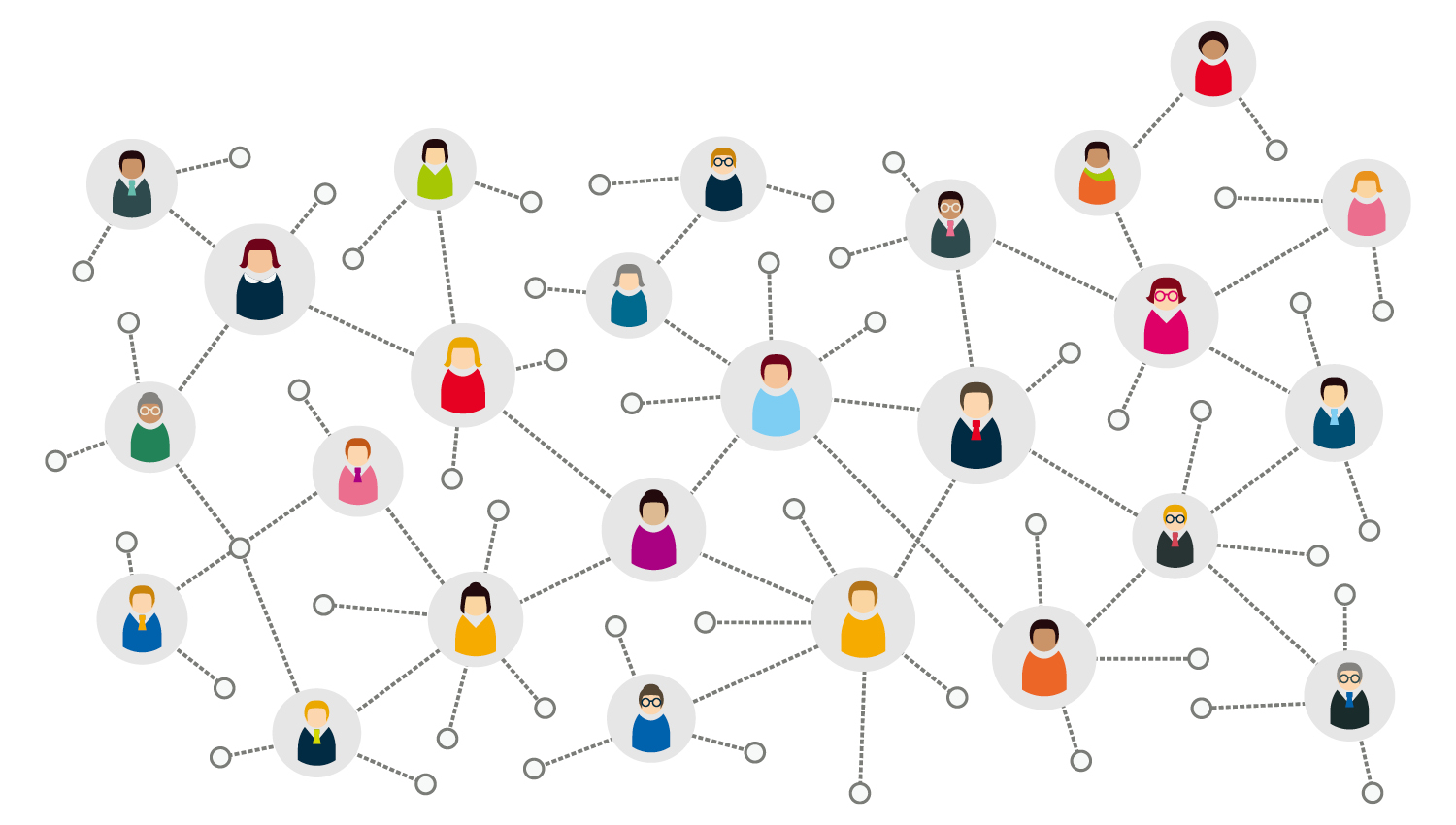
다음 단계: 개인화 된 데이터
▼
로베르트코흐연구소 책임자인 로타르 휠러는 개인 이동전화 데이터를 분석할 수 있다면 보건 당국의 업무를 크게 개선할 수 있다고 말했다. 그는 기술적인 문제와 법적 문제가 있지만 “우리는 그것이 합리적인 개념이라고 생각한다”고 말했다. 로베르트코흐연구소에서는 현재 12개 기관 소속 25명의 인력으로 구성된 팀이 자발적으로 솔루션을 개발하고 있다.
The next step: personalized data
▼
RKI boss Lothar Wieler said that the evaluation of personalized cell phone data by the RKI could represent an enormous improvement for the work of the health authorities. Despite technical and legal issues. “We think it’s a sensible concept,” he said. At the RKI, a team of 25 people from twelve different institutions are currently working on a solution on a voluntary basis.
앱을 이용하거나 모바일 통신망 네트워크에서 직접 이동전화 데이터를 수집하는 방법에 대해 전문가들은 논의 초반에 앱을 통한 솔루션을 선택했다. 연방데이터보호 책임자인 울리히 켈버는 이동전화 데이터에 대한 더 심도 깊은 접근은 개인정보수집에 영향을 받는 사람들의 동의가 있어야 정당화 될 수 있다고 경고했다.
In the discussion about the acquisition of cell phone data via apps or data directly from the mobile network, experts had rather opted for a solution via app at the beginning of the debate. The Federal Data Protection Commissioner Ulrich Kelber also warned that deeper access to the cell phone data can only be justified with the consent of those affected.
https://www.geospatialworld.net/blogs/eu-member-states-covid-19Geospatial World 2020년 3월 27일 기사 전문 게재


